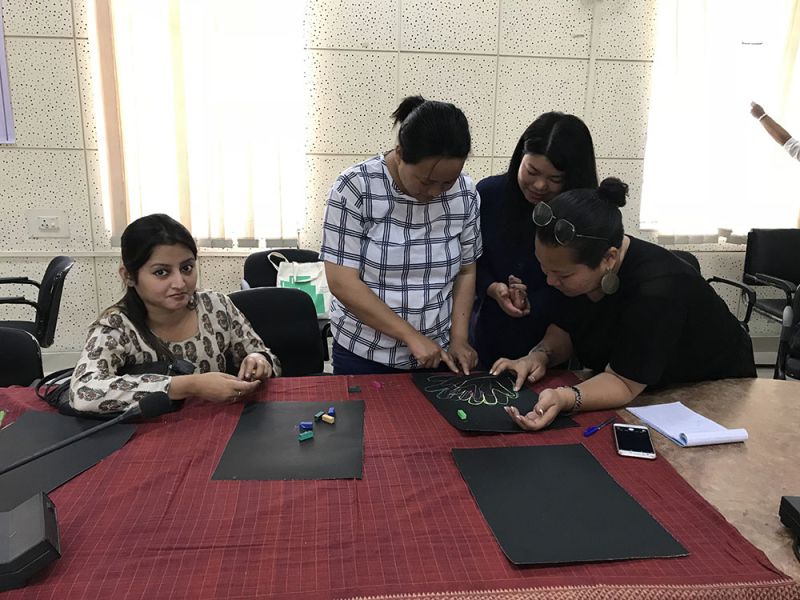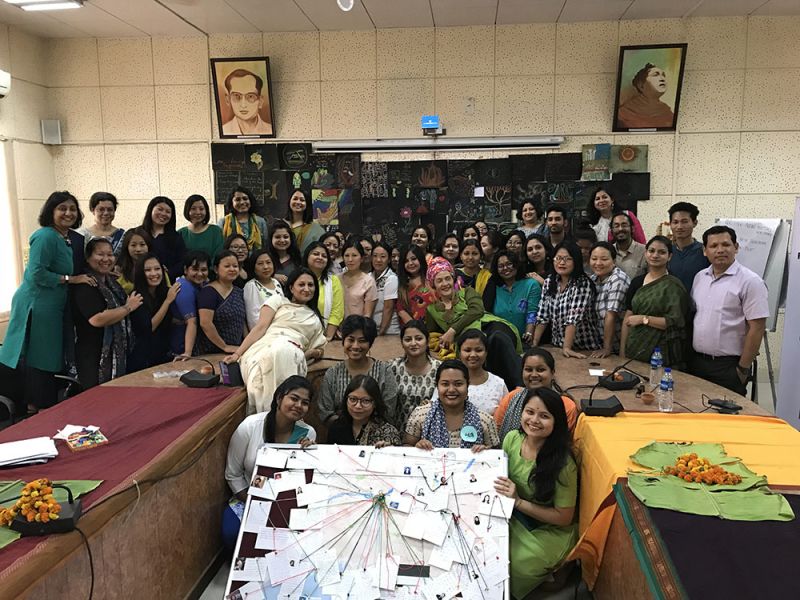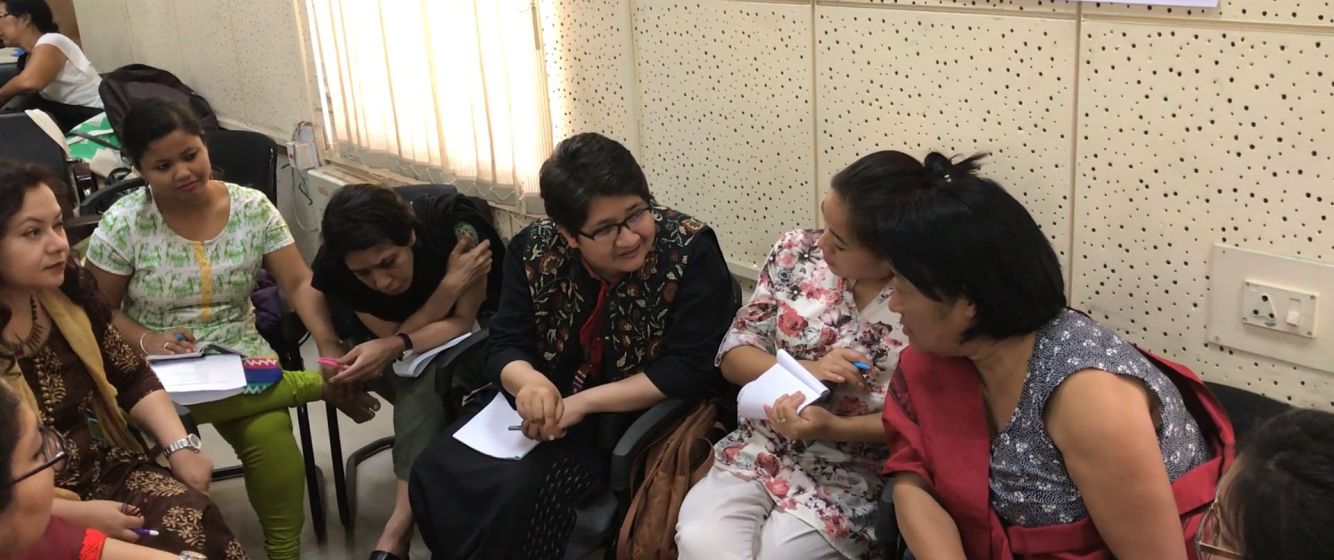Over the next few weeks, the blog will feature updates from our principal investigators on all the projects under the HaB umbrella. These updates will reflect the discussions and activities that took place over the past year, the connections forged, the challenges faced, and outlines for the future.
India's Northeast: Where Women Make Up Another Tribe
Activities: Research and Documentation
- Two TAs appointed in the summer of 2017, Tiachenla and Kamongla, covered several ethnic districts and communities in the Naga Hills identifying women who were part of collectives as well as individual voices for the idea of representing the meanings and usages of terms and daily words that refer to their gender and gender practices at a time that has witnessed social and political changes.
- In Guwahati, law practitioners and advocacy group Studio Nilima facilitated us with the idea of customs and codes that often become barriers in women’s activities and everyday life. Abantee Dutta, the trustee, joined us in the capacity of a research associate and we documented how women learnt to be aware of these changing worlds and challenges that confronted them.
- Several writings from Naga women, pamphlets and slogans that express various states of bias, unequal behaviour and their need to struggle for rights were collected and curated. In particular, my interest in graffiti and graphics that suggest how women are looked at and treated by male members in the community are also part of this documentation. Students' magazines, women's collectives and the manifestos of indigenous women that also represent the status of women and what needs to be changed have become part of our archival resource that was slowly expanding.
The Guwahati Methodology Workshop
In April 2018, a workshop on Gender methodologies was held at Cotton University for the women who are part of our voice and contribute to the Word archive we are building. Academics, activists, lawyers and researchers along with the HaB team worked together for 3 days, led by Professor Francoise Verges, Aarti Kawlra and myself towards a possible gender syllabus to effect changes in the pedagogic approach in universities and insitutions of higher education in the region. Several women’s studies academics came together to suggest possible changes and methods for syllabus making on such lines.
Outcomes
- An IIT Guwahati colleague who was part of the workshop, Dr Pahi Saikia, is interested in developing with me a gender syllabus that may be used as an orientation/training module for some of the programmes in institutions, communities and at the local grassroot level to test out the viability of using these materials to bring about changes of approach and awareness in gender studies and its application. I hope to take the framework of such syllabi to the Amsterdam conference as an example of how we develop and evolve knowledge production and changes thereof in the communities on the ground.
- Currently, our two TAs have nearly completed their work and are in the process of assembling a handbook of the materials we gathered from interviews and ethnographies conducted so far. This draft that we are in the process of preparing will be provisionally presented at Amsterdam in October.



Moving Forward
- At a trans-regional level, the SEAsia platform counterpart and my HaB colleague Tharaphi Than from Myanmar and I have plans to collaborate on such shared pedagogic interventions which we hope to present at Amsterdam to showcase our project outcomes.
- A proposed project outline, centred around the 'Practice' theme of HaB for 2018-19, builds around the traditional everyday practices of women, focused on weaving and indigo in the Naga hills. How this stitches together the Naga way of life will be documented through memories, stories, interviews, and accounts by weavers and entrepreneurs apart from archival records. These are key channels that connect the past with the continuing economic practice of weaving indigo and the many cultural and material traditions of Naga communities. The rituals, moralities, ethnic assertions, identity politics and even border cultures of the region often get inscribed in these traditional everyday practices that shall form the main thread and matrix of the project. The activities that are envisaged for this project will be field trips to Nagaland , following the appointment of new TAs, so as to collect stories and accounts, memoirs, diaries and biographies of women who are involved in the exercise.
- I also anticipate a cross-platform collaboration with Myanmar and Thailand on this practice and have begun talking to possible partners across platforms. One of the ways we can forge this concretely is to have a collaborative meeting in Guwahati in early/ spring of 2019. Another tangible outcome would be, tentatively, a jointly authored/ edited volume on Women’s Practices as a Gender studies pedagogic tool for Being/ Doing in terms of changing paradigms of gender epistemology in South/Southeast Asia.
Rakhee Kalita Moral
